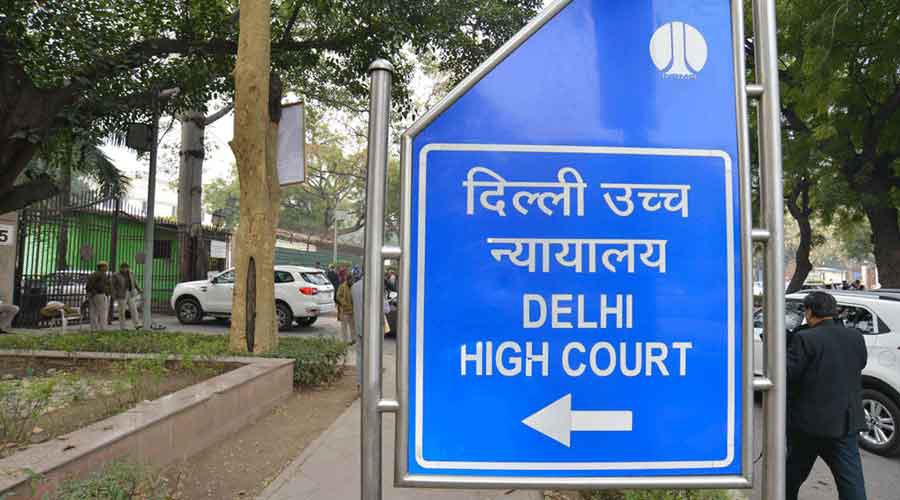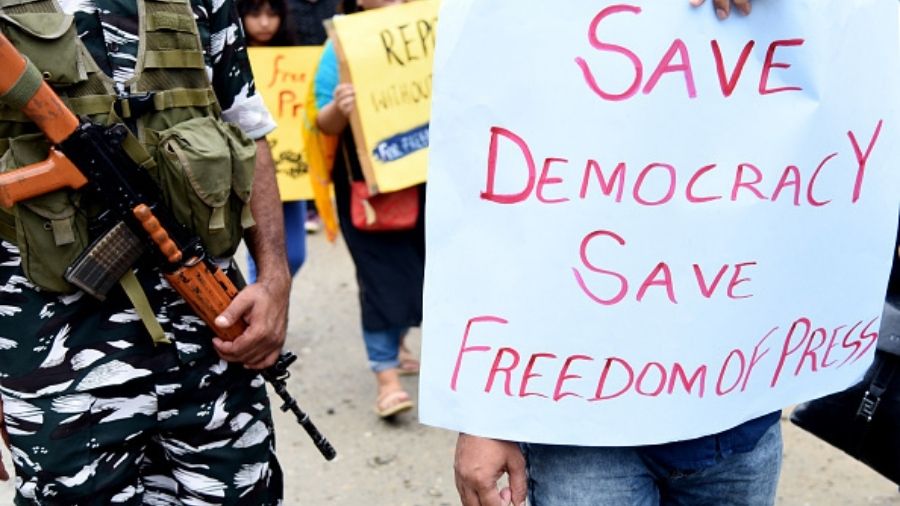The Supreme Court on Friday refused to stay the multiple high court proceedings on petitions that have challenged the Centre’s new IT rules, but agreed to consider transferring them to itself for an authoritative pronouncement on these regulations’ constitutional validity.
Various petitions have accused the new IT rules, which are aimed at regulating digital and social media outlets, of violating the freedom of speech and expression guaranteed by the Constitution.
The bench of Justices A.M. Khanwilkar and Sanjiv Khanna told solicitor-general Tushar Mehta that the matter would be heard on July 16.
Alongside, the bench will hear a connected petition, moved by advocate Shashank Shekhar Jha, seeking a leash on OTT platforms from airing porn and other material deemed objectionable.
The Centre has sought transfer of all the petitions to the Supreme Court to avoid a multiplicity of proceedings and possibly conflicting high court verdicts.
But as Mehta pressed for a stay on the proceedings before the high courts, Justice Khanwilkar said: “We’re not passing any other orders except tagging it and directing to list the same before the appropriate bench. Let the same come up on July 16.”
The Information Technology (Intermediary Guidelines and Digital Media Ethics Code) Rules, 2021, have been assailed by digital media houses such as The Wire and The Quint and the legal portal Live Law and certain others in the high courts.
Some of the provisions of the new rules prohibit the digital dissemination of any news, views or statements that:
⚫ Insult or harass on the basis of gender; are libellous or racially or ethnically objectionable
⚫ Encourage money laundering or gambling, or are otherwise inconsistent with or contrary to the laws in force
⚫ Are harmful to children
⚫ Infringe on patents, trademarks, copyrights or other proprietary rights
⚫ Deceive or mislead people about the origin of the message or knowingly communicate false or misleading information that may reasonably be perceived as fact
⚫ Facilitate impersonation
⚫ Threaten the unity, integrity, defence, security or sovereignty of India, friendly relations with foreign countries, or public order; or incite any cognisable offence or prevent investigation of any offence or insults another nation
⚫ Are patently false and have been disseminated to mislead or harass for financial gain or to harm someone
The intermediaries are also to exercise caution and discretion while featuring the activities, beliefs, practices, or views of any racial or religious groups. The new rules mandate a grievance redress mechanism under which
⚫ The intermediary is to prominently publish on its website, mobile-based application or both the name of its grievance officer and his or her contact details as well as the mechanism by which a user or a victim may lodge a complaint about any violation of the rules or any other matter relating to the computer resources made available by the intermediary
⚫ The grievance officer must (i) acknowledge the complaint within 24 hours and dispose of it within 15 days of its receipt; and (ii) receive and acknowledge any order, notice or direction issued by the appropriate government or any other competent authority or a court of competent jurisdiction
⚫ After receiving a complaint about content that exposes private areas of an individual, shows the individual in full or partial nudity or in any sexual act or conduct, or impersonates the individual in electronic form — for instance, through morphed images — the intermediary must within 24 hours take all reasonable and practicable measures to remove or disable access to such content hosted, stored, published or transmitted by it
⚫ The intermediary must implement a mechanism for receiving complaints that will enable people to provide necessary details about any contentious content or communication link
⚫ The stipulations apply to publishers of news and current affairs as well as publishers of curated online content













